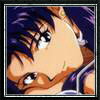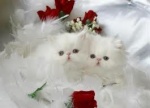Definitions
+2
Thewolf
the youth
6 posters
Page 1 of 1
 Definitions
Definitions
Hi everyone..
When reading a novel or a book that it conserns literature,one may stop at some essential terms wondering what they probably mean..words like Allegory..Irony..Metaphor..or Paradox...
I thought it might be a good idea giving simple and easy definitions for any literary term one thinks it's important to know.
When reading a novel or a book that it conserns literature,one may stop at some essential terms wondering what they probably mean..words like Allegory..Irony..Metaphor..or Paradox...
I thought it might be a good idea giving simple and easy definitions for any literary term one thinks it's important to know.

the youth- Number of posts : 281
Age : 37
Location : Home..where the heart is
Registration date : 2009-06-02
 Re: Definitions
Re: Definitions
I'll go..
Act: A main division in a play,itself devided into scenes.Traditionally,there are five acts in a play.
Character: The fictional representation of a person.
Symbol: An image that stands not only for itself,but for something else as well,and perhaps many things.
Gothic: Characterized by an atmosphere that is mysterious,frightening,and often supernatural.
Act: A main division in a play,itself devided into scenes.Traditionally,there are five acts in a play.
Character: The fictional representation of a person.
Symbol: An image that stands not only for itself,but for something else as well,and perhaps many things.
Gothic: Characterized by an atmosphere that is mysterious,frightening,and often supernatural.

the youth- Number of posts : 281
Age : 37
Location : Home..where the heart is
Registration date : 2009-06-02

Thewolf- Number of posts : 1050
Age : 424
Location : Desert
Registration date : 2010-01-12
 Re: Definitions
Re: Definitions
Nice and benificaial topic the youth, thanks.
ALLEGORY:
The word derives from the Greek allegoria ("speaking otherwise"). The term describes any writing in verse or prose that has a double meaning. This narrative acts as an extended metaphor in which persons, abstract ideas, or events represent not only themselves on the literal level, but they also stand for something else on the symbolic level. An allegorical reading usually involves moral or spiritual concepts that may be more significant than the actual, literal events described in a narrative. Typically, an allegory involves the interaction of multiple symbols, which together create a moral, spiritual, or even political meaning. The act of interpreting a story as if each object in it had an allegorical meaning is called allegoresis.
copied.
ALLEGORY:
The word derives from the Greek allegoria ("speaking otherwise"). The term describes any writing in verse or prose that has a double meaning. This narrative acts as an extended metaphor in which persons, abstract ideas, or events represent not only themselves on the literal level, but they also stand for something else on the symbolic level. An allegorical reading usually involves moral or spiritual concepts that may be more significant than the actual, literal events described in a narrative. Typically, an allegory involves the interaction of multiple symbols, which together create a moral, spiritual, or even political meaning. The act of interpreting a story as if each object in it had an allegorical meaning is called allegoresis.
copied.
Guest- Guest
 Re: Definitions
Re: Definitions
THE FORM: The principles and the physical materials that the writer has used in his peace of writing.It fefers to the visible elements of a piece, independent of their meaning.
THE CONTENT: What the writer means, what the writer portrays in his text. The content includes ways in which a work was influenced by religion, politics, or society in general.
THE CONTENT: What the writer means, what the writer portrays in his text. The content includes ways in which a work was influenced by religion, politics, or society in general.

chinda- Number of posts : 399
Age : 124
Location : Starland
Registration date : 2009-11-03
 Re: Definitions
Re: Definitions
Analogy: An extended comparison showing the similarities between two things; an explanation of one thing by comparing it to another thing.
Anti-Climax: Opposite of Climax. A release in dramatic tension that follows the climax and announces the denouement. Also called comic relief.
Argument: A form of discourse in which reason is used to convince people to change their ideas or actions.
Atomsphere: The relaxed,comic,tense (or otherwise) impression contrived mainly through action and setting.
Caesura: Pause in a line of verse, dictated by speech rhythm, not necessarily indicated by a punctuation mark.
Denouement: The untying of the plot; the final resolution.
Deviation: Unconcentional use of language meant to achieve special effects.
Diction: A writer's choice and arrangement of words.Diction can be formal or informal.
Drama: a) Any kind of work written to be performed on stage,incuding comedies, tragedies,farces,etc.
b) Something exciting or important that happens.
Dramatic Irony: A device whereby the reader(or audience) understands more of what is being said than the character is aware of.It is a common device for involving the reader (audience) in the action.
Elegy: A poem of mourning for someone who is dead; a sad poem.
Eulogy: A poem in which author sings the praises of someone.
Farce: A low type of comedy, generally with unsophisticated plot where ridiculous characters are involved in stereotyped and clownish actions.
Fiction: A narrative that is invented or imagined, especially in prose.Fction generally refers to the novel or the short story.
Imagery or Figurative language: Language is not intended to be interpreted literally. Common examples are Metaphor,Simile,Personification.
Figure of Speech: A term applied to a specefic kind of figurative language, such as Metaphor and Simile.
Foil: A character who sets off another character by contrast,e.g.Sancho Panza and Don Quixote.
Foreshadowing: The use of hints or clues in a narrative to suggest what action is to come.
Image: The representation of something sensed or perceived.
Line: In poetry, a combination of words which ends or breaks where the rhythm dictates.Also called Verse.
Lyric: Poetry that freely expresses the poet's feelings and emotions. Originally,lyrics were sung to the accompaniment of a lyre.Elegies,odes,hymns are forms of the lyric.
Melodrama: A type of a playwith tragic undertones which lays emphasis on the sensational and the emotional, and which ends happily.
Metre: The regular recurrence of stressed and unstressed syllables. The basic metrical unit is the foot.
Motif: A recurrent image, word,phrase.theme.character, or situation in a work of literature.
Grotesque: An exagerration and distortion in the portrayal of the human figure with a view to amusing and shocking the reader.
Hope I helped you with some..
To be continued


Anti-Climax: Opposite of Climax. A release in dramatic tension that follows the climax and announces the denouement. Also called comic relief.
Argument: A form of discourse in which reason is used to convince people to change their ideas or actions.
Atomsphere: The relaxed,comic,tense (or otherwise) impression contrived mainly through action and setting.
Caesura: Pause in a line of verse, dictated by speech rhythm, not necessarily indicated by a punctuation mark.
Denouement: The untying of the plot; the final resolution.
Deviation: Unconcentional use of language meant to achieve special effects.
Diction: A writer's choice and arrangement of words.Diction can be formal or informal.
Drama: a) Any kind of work written to be performed on stage,incuding comedies, tragedies,farces,etc.
b) Something exciting or important that happens.
Dramatic Irony: A device whereby the reader(or audience) understands more of what is being said than the character is aware of.It is a common device for involving the reader (audience) in the action.
Elegy: A poem of mourning for someone who is dead; a sad poem.
Eulogy: A poem in which author sings the praises of someone.
Farce: A low type of comedy, generally with unsophisticated plot where ridiculous characters are involved in stereotyped and clownish actions.
Fiction: A narrative that is invented or imagined, especially in prose.Fction generally refers to the novel or the short story.
Imagery or Figurative language: Language is not intended to be interpreted literally. Common examples are Metaphor,Simile,Personification.
Figure of Speech: A term applied to a specefic kind of figurative language, such as Metaphor and Simile.
Foil: A character who sets off another character by contrast,e.g.Sancho Panza and Don Quixote.
Foreshadowing: The use of hints or clues in a narrative to suggest what action is to come.
Image: The representation of something sensed or perceived.
Line: In poetry, a combination of words which ends or breaks where the rhythm dictates.Also called Verse.
Lyric: Poetry that freely expresses the poet's feelings and emotions. Originally,lyrics were sung to the accompaniment of a lyre.Elegies,odes,hymns are forms of the lyric.
Melodrama: A type of a playwith tragic undertones which lays emphasis on the sensational and the emotional, and which ends happily.
Metre: The regular recurrence of stressed and unstressed syllables. The basic metrical unit is the foot.
Motif: A recurrent image, word,phrase.theme.character, or situation in a work of literature.
Grotesque: An exagerration and distortion in the portrayal of the human figure with a view to amusing and shocking the reader.
Hope I helped you with some..
To be continued

the bright queen- Number of posts : 101
Age : 33
Location : every where
Registration date : 2010-07-27
 Re: Definitions
Re: Definitions
any other definitions???

the bright queen- Number of posts : 101
Age : 33
Location : every where
Registration date : 2010-07-27
 Re: Definitions
Re: Definitions
Here are some definitions
anastrophe anastrophe a.nas.tro.phe n. Inversion of the normal syntactic order of words, for example: To market went she.[Gk. anastrophe Example:
Woolf, Virgina, Works of Virginia Woolf: The Lighthouse., Monarch Notes, 01-01-1963. "Mrs. Woolf also makes use of other figures of speech such as anastrophe (the deliberate inversion of word order)..."
Characterization
Characterization is the method used by a writer to develop a character. The method includes (1) showing the character's appearance, (2) displaying the character's actions, (3) revealing the character's thoughts, (4) letting the character speak, and (5) getting the reactions
Metaphor
Metaphor the comparison of two UNLIKE things. Simile, personification, anthropomorphism, hyperbole, parable, fable, animism, and analogy are metaphors.
Metaphors are used to help us understand the unknown, because we use what we know in comparison with something we don't know to get a better understanding of the unknown
Simile
Simile is the comparison of two unlike things using like or as. Related to metaphor
mourad- Number of posts : 9
Age : 40
Registration date : 2009-05-26
 Re: Definitions
Re: Definitions
thanks alot dears

gaby- Number of posts : 66
Age : 33
Location : el-eulma/setif/algeria
Registration date : 2010-10-29
Page 1 of 1
Permissions in this forum:
You cannot reply to topics in this forum




